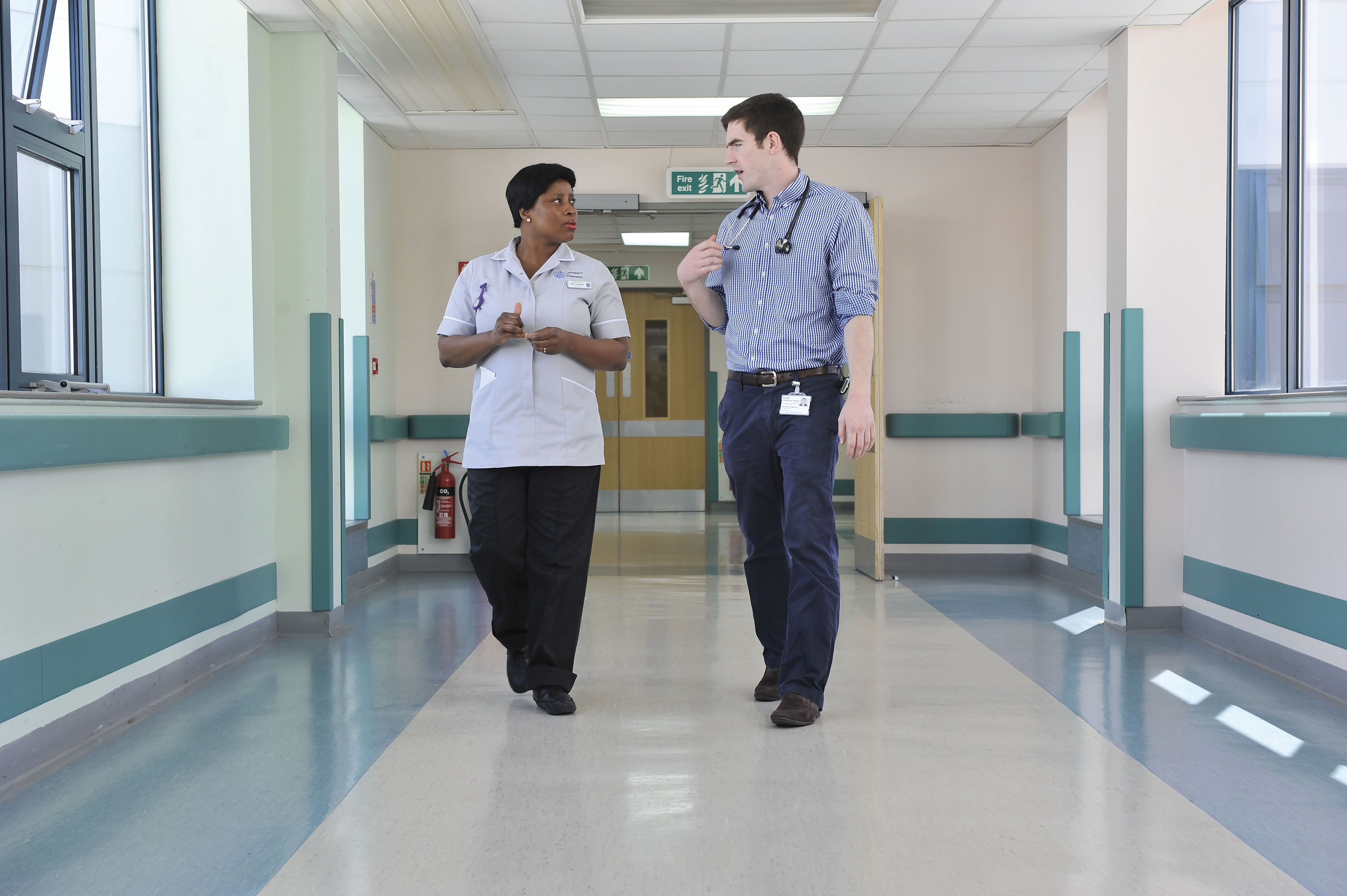Course overview
This Master’s degree in Interprofessional Healthcare Simulation will develop your knowledge, skills and confidence to autonomously design, deliver, manage and evaluate healthcare related simulations.
This innovative course aims to embody the definition of interprofessional healthcare simulation. Simulation in this context refers to a spectrum of activity from simple role playing, through to simulated patients, part-task trainers, hybrid models, full body manikins and immersive simulated environments. The interprofessional element refers to anyone who may be involved in the design, delivery or evaluation of simulation activities, whether it be technicians, healthcare professionals or academics.
This programme is underpinned by a master’s level award encompassing gained skills in leadership, management, education and research with a demonstration of core capabilities and field specific competence. You will have the option to join a multidisciplinary simulation research group that is part of a wider initiative to advance the field of simulation.
This is the only course of its kind to include an Economic Evaluation of Simulation and Transformative Simulation as standalone modules.
Application Requirements
Unique Learning Opportunities: this is the only course of its kind to include an economic evaluation of simulation and Transformative Simulation as stand alone modules.
Placement Experience: Practical experience in our state-of-the-art facilities, or simulation facilities of your choice, or a mixture of both.
Teaching and Research Excellence: One of the programme founders, Professor Sharon Marie Weldon, is a leading expert in healthcare simulation and has developed global simulation training programmes, received funding from UKRC’s for innovative simulation projects, and has published widely on the subject as well as being an editor and associate editor on simulation journals and on the executive committee for ASPiH.
Industry Accreditation: Graduates will be supported to apply for accreditation as a Simulation Educator with recognised national simulation organisations such as the Association for Simulated Practice in Healthcare (ASPiH).
Diversity and inclusivity: This is considered throughout the programme in terms of how simulation is designed and conducted (drawing on the Sim-versity tool), the types of manikins and simulated patients utilised within the UoG’s facilities, and the applicants this programme is aimed at.
Research: Students have the option to join a multidisciplinary simulation research group that is part of a wider initiative to advance the field of simulation.
This programme has the following core/optional modules
OMED-1407: Healthcare Simulation: Principles and Practice
OMED-1408: Healthcare Simulation: Management, Leadership, Design and Delivery
OMED-1410: Transformative Healthcare Simulation
OMED-1412: Economic Evaluation of Simulated Practice
OMED-1411: Enquiry Skills for Research in Simulated Healthcare Practice
Accredited by




Course fees
Why choose Greenwich?
We have over 25 years’ experience as a trusted provider of health and social care CPD.
Our academic staff have both practical expertise and academic skills to develop and support professional learning.
Our courses are developed in partnership with NHS colleagues and education providers, with input from students, service users and carers.
State-of-the-art facilities that include the brand-new Greenwich Learning and Simulation Centre (GLASC).

Course details
Downloads
Prerequisites
Applicants are expected to have successfully completed a Level 6 programme of study or have equivalent study/experience and have the required experience within a specified scope of simulated practice.
Applicants interested in this programme must have the required experience and qualifications according to the nature of their scope and context of their practice, role and profession.
- A first degree in a health professional programme; normally 2:2 or above
- Or relevant post-qualifying experience or equivalent
- Applicants who do not have English as their first language must demonstrate an IELTS score of at least 6.5 with 6 in each skill (University requirement for non-EU students only).
In addition, you will need to attend an interview.

Make an enquiry
Make an enquiry

